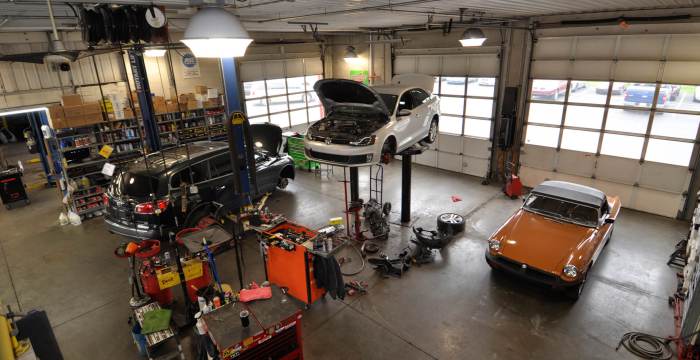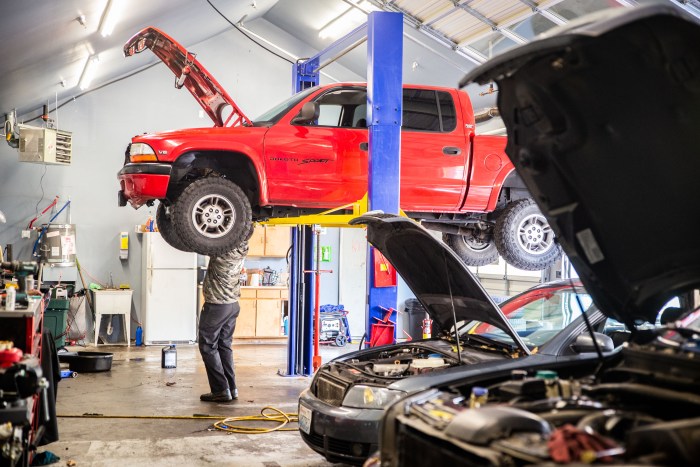Automotive Hobby Shop: The smell of engine oil, the gleam of polished chrome, the quiet hum of a meticulously tuned engine—these are the hallmarks of a thriving automotive hobby shop. These businesses cater to a passionate clientele, offering everything from rare parts and specialized tools to expert advice and a vibrant community. But navigating this niche market requires a keen understanding of customer needs, efficient operations, and a savvy marketing strategy.
Success hinges on more than just stocking shelves; it’s about building relationships and fostering a shared love for automotive restoration and customization.
This report delves into the multifaceted world of automotive hobby shops, examining their business models, product sourcing, marketing strategies, operational efficiency, and the creation of a compelling customer experience. We’ll analyze the challenges and opportunities inherent in this sector, providing insights for both established businesses seeking growth and entrepreneurs considering entering this unique market.
Defining the Automotive Hobby Shop Market

The automotive hobby shop market encompasses a diverse range of businesses catering to individuals passionate about restoring, modifying, or maintaining their vehicles. This market thrives on the dedication of car enthusiasts and the specialized knowledge required to support their hobbies. Understanding its nuances requires examining the customer base, product offerings, business models, and inherent challenges.The typical customer profile of an automotive hobby shop is multifaceted.
It includes seasoned mechanics undertaking extensive restoration projects, weekend warriors performing routine maintenance, and newcomers seeking guidance on simple repairs. Age ranges widely, spanning from young adults building custom cars to retirees meticulously restoring classic models. Common characteristics include a passion for automobiles, a willingness to invest time and resources in vehicle upkeep, and varying levels of mechanical expertise.
This diverse clientele demands a broad product range and adaptable service offerings.
Key Product Categories Offered by Automotive Hobby Shops
Automotive hobby shops stock a wide array of products to meet diverse customer needs. These typically include parts and components, tools and equipment, chemicals and fluids, and specialty items. Parts encompass everything from engine components and body panels to interior trim and electrical systems, often specializing in specific vehicle makes or models. Tools range from basic hand tools to advanced diagnostic equipment, reflecting the varied skill levels of the customer base.
Chemicals and fluids include motor oil, brake fluid, and paint, alongside specialized cleaning agents and protective coatings. Specialty items might include model kits, automotive literature, or memorabilia, catering to the collector aspect of the hobby. The inventory strategy often reflects the shop’s focus – a shop specializing in classic cars will carry different parts than one focusing on modern performance vehicles.
Business Models of Automotive Hobby Shops
Automotive hobby shops operate under various business models, primarily independent shops and franchises. Independent shops offer greater flexibility in product selection and pricing but often face challenges in securing competitive bulk pricing and marketing resources. Franchises, on the other hand, benefit from brand recognition, established supply chains, and standardized marketing campaigns, but may have less autonomy in operations and inventory choices.
A successful independent shop might leverage its specialization in a niche market segment (e.g., vintage British sports cars) to compete with larger franchises. Conversely, a franchise might benefit from economies of scale and brand recognition to maintain profitability even with a broader, less specialized inventory.
Common Challenges Faced by Automotive Hobby Shops
Automotive hobby shops contend with several recurring challenges. Competition from online retailers presents a significant hurdle, particularly for parts and tools that can be easily shipped. Maintaining inventory can be costly, especially for specialized or less frequently demanded parts. The need for skilled labor adds another layer of complexity, as qualified mechanics are in high demand. Keeping up with technological advancements in automotive repair and diagnostics also requires continuous investment in training and equipment.
Finally, regulatory compliance, including proper disposal of hazardous materials, adds to operational costs and administrative burdens. For example, a small independent shop might struggle to compete with Amazon on price for common parts, while a larger franchise might find itself facing increased pressure to meet stringent environmental regulations.
Product Range and Sourcing

A successful automotive hobby shop requires a diverse and carefully curated product range, sourced strategically to ensure both profitability and customer satisfaction. The inventory must cater to a broad spectrum of enthusiasts, from those tackling simple maintenance to experienced mechanics undertaking complex restorations. Sourcing, meanwhile, involves navigating a complex landscape of manufacturers, wholesalers, and distributors to secure high-quality products at competitive prices.
The following table illustrates a sample inventory for a mid-sized automotive hobby shop. Note that this is not exhaustive, and the specific products offered will vary depending on local demand and the shop’s specialization.
Sample Inventory List
| Product Name | Category | Supplier | Price |
|---|---|---|---|
| Engine Oil (5W-30 Synthetic) | Lubricants | Mobil | $35 |
| Brake Pads (Ceramic) | Brakes | Bosch | $60 |
| Spark Plugs (Iridium) | Ignition | NGK | $15 |
| Air Filter (High-Flow) | Air Intake | K&N | $40 |
| Timing Belt Kit | Engine Components | Gates | $150 |
| Carburetor Rebuild Kit (Holley 4150) | Carburetors | Holley | $75 |
| Wheel Bearing Kit (Front) | Suspension | Timken | $80 |
| Paint (Gloss Black, Aerosol) | Paints & Finishes | Dupont | $20 |
| Socket Set (Metric) | Hand Tools | Craftsman | $100 |
| Torque Wrench (1/2″) | Hand Tools | Snap-on | $250 |
Sourcing Strategies
Automotive hobby shops employ a variety of sourcing strategies to acquire their products. Many rely on a combination of direct relationships with manufacturers, wholesale distributors, and online marketplaces. Direct relationships often yield better pricing and access to exclusive products, while wholesalers provide a broader selection and streamline the ordering process. Online marketplaces offer convenience and access to niche items that might not be available through traditional channels.
Negotiating favorable terms with suppliers is crucial for maintaining profitability. For example, a shop might secure bulk discounts by committing to larger orders or establishing long-term contracts.
Quality Control in Product Selection, Automotive Hobby Shop
Maintaining high standards of quality control is paramount for an automotive hobby shop. The reputation of the shop hinges on the reliability and performance of the products it sells. This involves careful vetting of suppliers, rigorous inspection of incoming shipments, and a commitment to stocking only reputable brands. Customer reviews and industry ratings play a significant role in product selection.
Shops might also conduct their own testing or rely on independent testing data to verify product claims. Offering a warranty or return policy further demonstrates a commitment to quality and customer satisfaction. Failing to prioritize quality control can lead to damaged customer relationships, product returns, and ultimately, decreased profitability.
The automotive hobby shop market, while niche, presents significant opportunities for those who understand its unique dynamics. Success relies on a potent combination of curated product selection, effective marketing that resonates with passionate enthusiasts, and the cultivation of a strong community. By focusing on customer experience, operational efficiency, and a clear understanding of the market, automotive hobby shops can not only thrive but also contribute to the enduring legacy of automotive passion.

